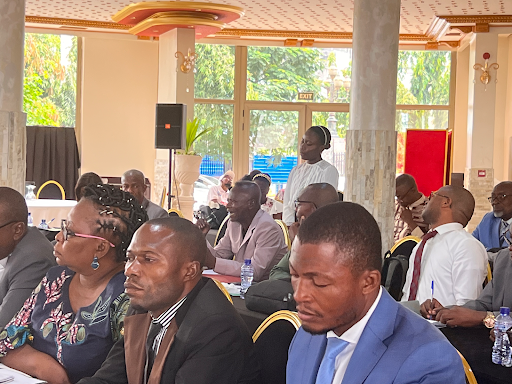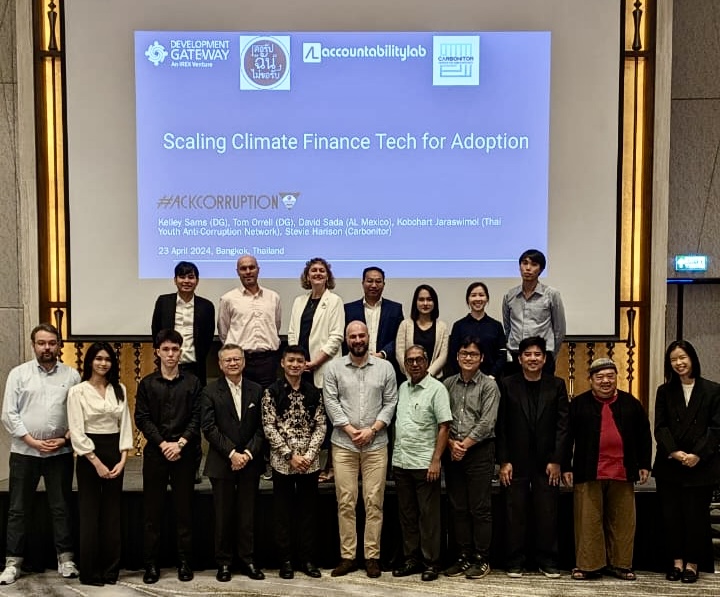Post-Habitat III reflections: An ever growing toolbox?
Last month, nearly 50,000 people convened in Quito, Ecuador to discuss the importance of cities as drivers of development worldwide. While Habitat III — the United Nations Conference on Housing and Sustainable Urban Development — showcased many success stories, the take-home message was clear: cities still do not have the resources nor the information they need to be the “first line” of defense, resilient in the face of unexpected changes, and drivers of responsive action for citizens worldwide.
But how can this be, when a number of resources — toolkits, toolboxes, guide books — were discussed and unveiled at the conference?
Many city-oriented resources support a city for a very specific purpose. But without a coordinated effort to integrate within and across other city processes, many cities-oriented resources get used for only a specific purpose, with little to no added value for other, broader planning purposes.
Cities have expressed time and again that they are overburdened, overstretched, and underfunded. Creating more and more resources — particularly in a non-integrated way — adds an increased burden on cities. As more tools get developed, the focus on integrating them into existing processes, or with existing tools, is not yet clearly defined. Cities still work, for the most part, in silos; yet the need for more holistic planning — and by extension, more holistic tool development and harmonization — is more important than ever. Finally, this lack of coordination also leads to duplicative tools, further decreasing their “value for time” — for cities and for the tool creators.
Therefore, for me, the lingering question after Habitat III was not “are we thinking about, and creating tools for, cities?” Rather, “as supporters of cities, are we making an active effort to coordinate, understand, and integrate new tools with existing ones?”
Development Gateway has developed one such resource for cities, the Cities Data Toolkit. Through that process we have learned a lot about the benefits of employing a pragmatic, cooperative, and iterative approach in developing a tool to alleviate the work burdens many cities face. During the tool’s development, we learned the following key lessons, which we hope can be of use to others working in this realm:
-
Talk to cities and assess their actual data needs. Particularly in the resource-stretched context of city management, only tools which meet a direct, pressing, expressed need are likely to be used sustainably.
-
Determine where synergies can be maximized. Duplicative data collection and sharing should be reduced as much as possible, and robust existing resources and research should be cited and cross-shared.
- Work iteratively and openly. City stakeholders should have a say at every step of the way; as the tool’s ultimate constituency and knowledge resource, these insights should be cultivated, built upon, and never ignored.
Habitat III served as a celebration of innovative approaches to sustainable development. But more importantly, it provided a wake-up call to the collective community that more engagement, coordination, and communication are crucial to the success of data-driven cities. So where are we going next? As an organization, we are continuing our collaboration with city leaders across the world; partners at Athena Infonomics and Cities Alliance; the Sustainable Development Solutions Network; and others in preparation for the Cities Data Toolkit rollout. We are also continuing our learning about the needs cities have as they embark on their pathways to becoming more data-driven and data-efficient. We look forward to continuing to collaborating with and updating you on our progress — please contact us directly, if you are interested in discussing further!
Share This Post
Related from our library

The Future of Technology Governance and Global Development: Why DG Brought DataReady In-house
DG is excited to announce we now have more robust data governance advisory services with the recent integration of DataReady.

Stakeholder, Where Art Thou?: Three Insights on Using Governance Structures to Foster Stakeholder Engagement
Through our Tobacco Control Data Initiative (TCDI) program and its sister program Data on Youth and Tobacco in Africa (DaYTA), we have learned that creating governance structures, such as advisory boards or steering committees, is one approach to ensuring that digital solutions appropriately meet stakeholders’ needs and foster future stakeholder engagement. In this blog, we explore three insights on how governance structures can advance buy-in with individual stakeholders while connecting them to one another.

Letting the Sunshine in: Building Inclusive, Accountable, and Equitable Climate Finance Ecosystems
In April, DG, HackCorruption, and the Thai Youth Anti-Corruption Network hosted a roundtable in Bangkok to discuss climate financing. This blog explores the main takeaway: a multi-disciplinary and multi-stakeholder approach that prioritizes local contexts, inclusive governance, transparency, accountability, and equitable distribution of resources is essential to impactful climate financing.